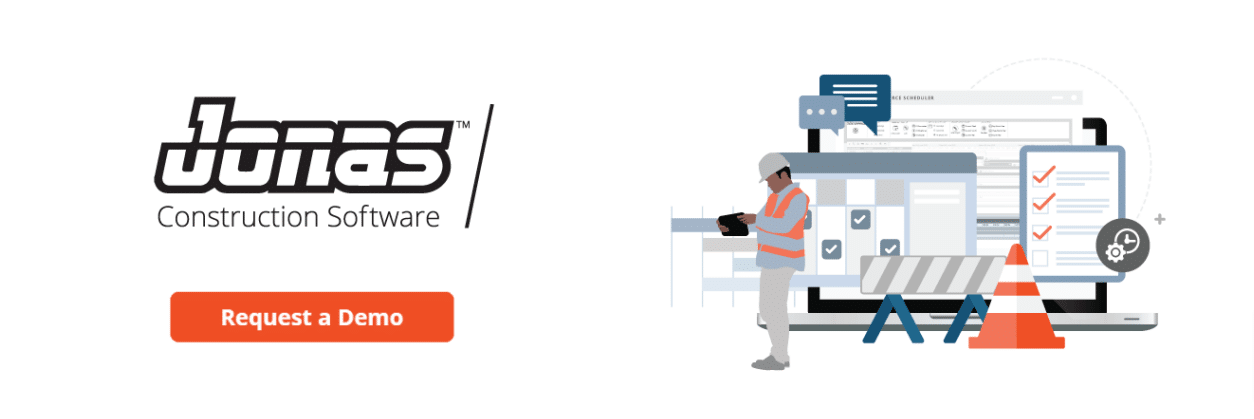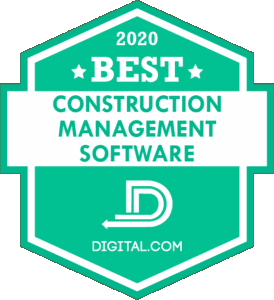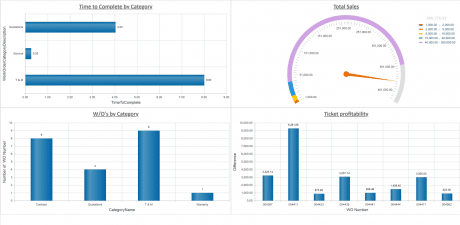Last Updated on July 4, 2024
As contracting businesses continue to grow, relying on Excel spreadsheets for accounting and Job Costing becomes a limitation. When this occurs, many businesses leverage QuickBooks for Contractors, as their work becomes more complex. With QuickBooks for Contractors, invoice entry is extremely simple to do, and you are able to run basic reports. For small contractors, QuickBooks is the perfect introduction to basic accounting software.
As contractors grow however, QuickBooks may become limited for more advanced functions that are required. Vital functions like detailed job costing and complex payroll need to be handled outside of QuickBooks, thus spreading data across multiple systems. Many contractors quickly learn that despite QuickBooks being a tremendous accounting resource, it is lacking in other important areas.
If you are a contractor looking for a simple accounting system, QuickBooks for Contractors might be the choice for you. If you are beginning to notice its shortcomings, and are seeking a more complete and integrated software, then it might be a good idea to look at a full ERP solution.
When to consider switching from QuickBooks to an ERP:
-
Lack of visibility into vital business metrics.
Full ERP solutions provide increased visibility as compared to accounting-only solutions. Executive dashboards, robust reporting solutions and extensive drill-down capabilities make it easy for owners and managers to see how the business is doing, in real time. With business intelligence and advanced analytical tools, contractors are able to make more accurate and informed decisions.
-
Little control over your numbers.
Because of the integrated nature of ERP solutions, businesses will be able to have full confidence that their numbers are correct. From a financial perspective, estimates, projects, change orders and accounting are all housed within one system. This provides businesses with one access point for important data that they can recall in seconds. Although QuickBooks provides accurate financials, other important metrics are spread out among various systems or in excel spreadsheets.
-
Too many systems that don’t integrate.
With QuickBooks taking care of accounting, other solutions are needed for document management, project management, payroll, inventory and dispatching. As businesses scale, maintaining all of these systems becomes difficult and there is no single source of truth. Maintaining various systems leaves your business at the risk of payment increases, secure information getting into the wrong hands, or lost information. With an integrated construction & service solution, businesses can feel confident that all important functions are stored safely under one roof, giving your business one location for all important information.
-
Manual processes are extremely time-consuming.
Despite having your accounting safe with QuickBooks, businesses are still relying on spreadsheets and Word Documents to transfer and store information. If this is the case, businesses are forced to rekey duplicate information in various systems, which is extremely time-consuming and prone to human error. In addition, having few staff members with knowledge into these very specific processes, businesses risk this information being lost due to employee turnover, retirement or illness. A fully-integrated ERP allows you to create processes that are standardized, efficient and easy to learn, which leaves your business prepared for the unexpected.
-
You’re not working with industry experts.
Although QuickBooks customer support is known to be excellent, this may not be the case with other software or point solutions the business is using. For example, by using multiple systems used for payroll, project management and service management, seeking support and training from various places may become an issue. In addition, many of these points solutions work with various industries, and therefore not an expert in construction and service processes.
With an ERP solution designed for your industry, you will be guaranteed to work with experts who have tremendous experience in the construction and service industry. Everyone from implementation consultants to support reps have a full understanding of your industry and with this knowledge, can help get your staff fully trained in a timely manner, and provide your business with solutions quickly and efficiently.







